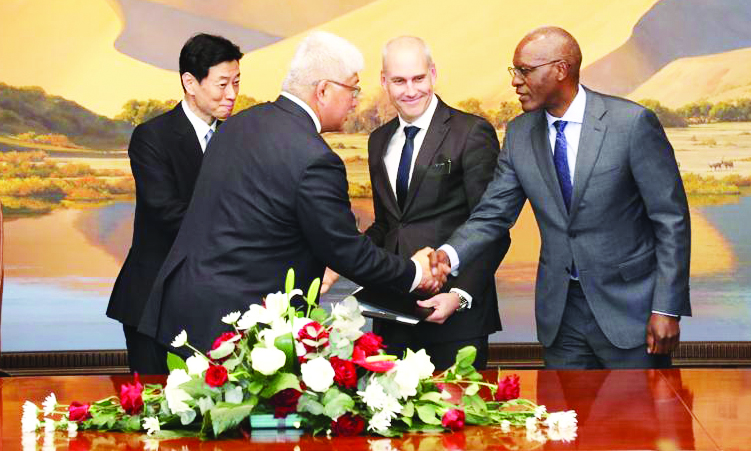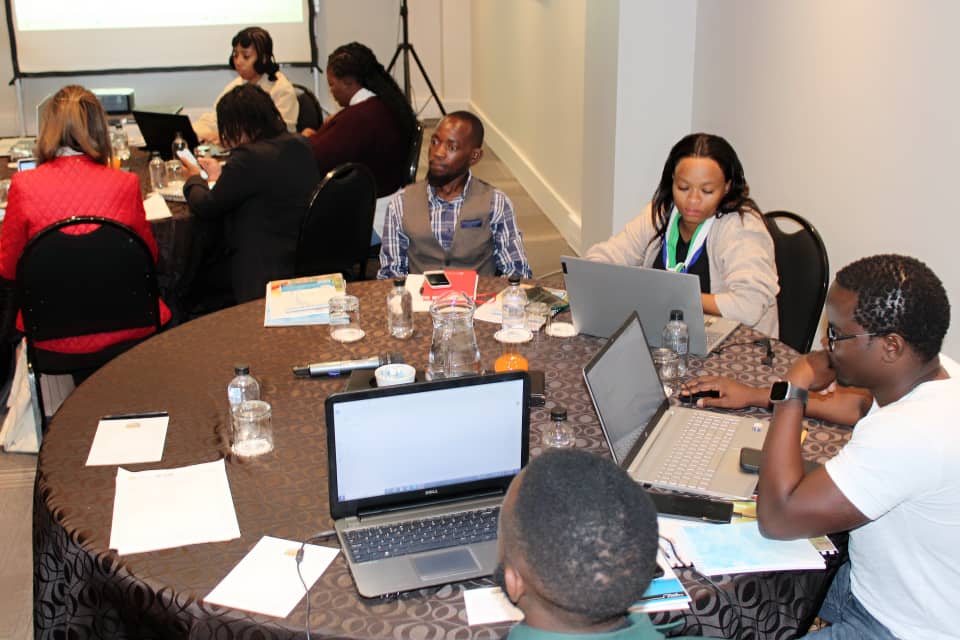Japan has joined the ranks of countries investing in Namibia’s abundant natural resources after the two countries yesterday signed agreements on green hydrogen and rare earth minerals.
This is after Hyphen Hydrogen Energy and Itochu, a major Japanese trading and investment firm, inked a groundbreaking agreement at State House yesterday.
Japan joins various global investors, such as the European Union, Germany, Finland and The Netherlands, in signing agreements with Namibia for their green hydrogen ambitions.
Shinya Ishizuka, Itochu’s chief executive officer for the African bloc, said the company aims to create a wide range of ammonia value chains in various existing industrial applications as well as for future energy use.
He said the company will also support its clients and industries in achieving low carbonisation goals focusing on Japan, Asia and its surrounding markets.
“Itochi will initiate and enhance our industrial portfolio in the energy sector while achieving our commitments towards decarbonisation activities in various prospective industries,” Ishizuka said.
At the core of this collaboration lies the Hyphen project, poised to become Namibia’s sole fully vertically integrated green hydrogen project. By 2029, the ambitious venture aims to churn out two million tonnes of green ammonia annually, destined for both regional and global markets.
This ambitious target hinges on harnessing a colossal renewable generation capacity of seven gigawatts and an electrolyser capacity of three gigawatts.
Hyphen chief executive Marco Raffinetti highlighted the substantial potential he sees in Namibia’s role as a lasting strategic ally for Japan in the realm of green hydrogen supply.
He envisions a partnership that extends far beyond the scope of Hyphen’s current project, capitalising on Namibia’s distinctive competitive edge in the production of green hydrogen.
“I firmly believe that Namibia has the potential to become a long-term strategic partner to Japan for the supply of green hydrogen, well beyond the scale of Hyphen’s project, given Namibia’s unique competitive advantages in green hydrogen production,” Raffinetti said.
RARE EARTHS
Presidential economic advisor and green hydrogen commissioner James Mnyupe said along with its green hydrogen ambitions, Japan will conduct a study on Namibia’s ability to add value to its rare earth elements.
The Asian country wants to extract rare earth elements in Namibia.
Mines and energy minister Tom Alweendo also highlighted Japan’s pivotal role as a significant global partner in the realms of green hydrogen and rare earth minerals. He said Japan’s requirement for access to essential minerals aligns with Namibia’s aspiration to process its rare earth minerals domestically.
“In our discussions, their interest is that they have access to those minerals and for us is to make use of those minerals and industrialise our economy and not continue to export them in raw form, but to actually process them and sell them to international markets,” Alweendo said.
Mines and energy deputy executive director Erasmus Shivolo told the media that the agreement speaks to Japan’s ambitions to explore for rare earth elements.
The chairperson and head of the Japan Organisation for Metals and Energy Security (Jogmec), Ichiro Takahara, signed the agreement with Shivolo.
“The rare earths are part of the critical minerals that are really necessary for energy transition. Jogmec is participating in a project at Khorixas to develop that mine there. Apart from that, they want to look at other opportunities,” Shivolo said.
“What they are still looking at is rare earths around in the country and where they can find other deposits of that nature,” he said.
This comes after Namibia in June this year banned the export of unprocessed critical minerals, such as crushed lithium ore, cobalt, manganese, graphite and rare earth metals and elements, as the country seeks to get maximum benefits from the growing global demand for metals used in clean energy technologies.
Last year, Namibia signed an agreement to supply rare earth minerals to the European Union under the bloc’s plan to reduce its reliance on China for critical minerals.
Alweendo and Japan’s trade and industry minister, Nishimura Yasutoshi, witnessed yesterday’s signing ceremony.
TRADE AGREEMENT
Namibia’s trade ministry also signed an agreement with Japan’s Ministry of Economy, Trade and Industry as well as the Japan External Trade Organisation (Jetro) to facilitate trade and investment between the two countries.
The agreement is aimed at “supporting collaboration between Namibian and Japanese business sectors, including business mission dispatch in the fields of interest to companies”, said trade minister Lucia Iipumbu.
Much like Western countries, Japan also wants to support Namibia’s human resources development that contributes to the country’s industrialisation.
The agreement also includes improving the business environment in both countries.
Iipumbu said Namibia exports goods worth N$90 million to Japan and imports products amounting to N$1,4 billion anually.
Stay informed with The Namibian – your source for credible journalism. Get in-depth reporting and opinions for
only N$85 a month. Invest in journalism, invest in democracy –
Subscribe Now!






